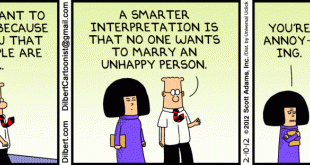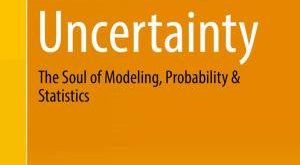In search of causality One of the few statisticians that yours truly have on the blogroll is Andrew Gelman. Although not sharing his Bayesian leanings, I find his open-minded, thought-provoking and non-dogmatic statistical thinking highly recommendable. The plaidoyer below for ‘reverse causal questioning’ is typical Gelmanian: When statistical and econometrc methodologists write about causal inference, they generally focus on forward causal questions. We...
Read More »Kalecki on wage-led growth
Kalecki on wage-led growth One of the main features of the capitalist system is the fact that what is to the advantage of a single entrepreneur does not necessarily benefit all entrepreneurs as a class. If one entrepreneur reduces wages he is able ceteris paribus to expand production; but once all entrepreneurs do the same thing — the result will be entirely different. Let us assume that wages have been in fact generally reduced … and in consequence...
Read More »The power of self-belief …
The power of self-belief … Advertisements
Read More »Istället för terapi (personal)
Istället för terapi (personal) I alla moderna människors liv behövs det tid för andhämtning och reflektion. Och ibland — när alla möjliga och omöjliga måsten och krav från omgivningen bara blir för många och högljudda — kan det vara skönt att dra sig undan lite grand och slå av på takten för en stund. Alla har vi väl olika sätt att göra det på. Själv brukar jag gå in på Öppet Arkiv och titta på Gubben i stugan — Nina Hedenius underbart fina dokumentärfilm...
Read More »Kausala modeller och heterogenitet (wonkish)
Kausala modeller och heterogenitet (wonkish) I The Book of Why för Judea Pearl fram flera tunga skäl till varför den numera så populära kausala grafteoretiska ansatsen är att föredra framför mer traditionella regressionsbaserade förklaringsmodeller. Ett av skälen är att kausala grafer är icke-parametriska och därför inte behöver anta exempelvis additivitet och/eller frånvaro av interaktionseffekter — pilar och noder ersätter regressionsanalysens nödvändiga...
Read More »Truth and probability
Truth exists, and so does uncertainty. Uncertainty acknowledges the existence of an underlying truth: you cannot be uncertain of nothing: nothing is the complete absence of anything. You are uncertain of something, and if there is some thing, there must be truth. At the very least, it is that this thing exists. Probability, which is the science of uncertainty, therefore aims at truth. Probability presupposes truth; it is a measure or characterization of truth. Probability is...
Read More »Seraphim Bit-Kharibi
[embedded content] Advertisements
Read More »Text och musik med Eric Schüldt
Text och musik med Eric Schüldt I dessa tider, när ljudrummet dränks i den kommersiella radions tyckmyckentrutade ordbajseri och fullständigt intetsägande pubertalflamsande tjafs, har man nästan gett upp. Men det finns ljus i mörkret. I programmet Text och musik med Eric Schüldt — som sänds på söndagsförmiddagarna i P2 mellan klockan 11 och 12 — kan man lyssna på seriös musik och en programledare som har något att säga och inte bara låter foderluckan...
Read More »This is Sweden
[embedded content] Advertisements
Read More »Robert Gordon said it all 40 years ago!
Robert Gordon said it all 40 years ago! What is science? One brief definition runs: “A systematic knowledge of the physical or material world.” Most definitions emphasize the two elements in this definition: (1) “systematic knowledge” about (2) the real world. Without pushing this definitional question to its metaphysical limits, I merely want to suggest that if economics is to be a science, it must not only develop analytical tools but must also apply...
Read More » Lars P. Syll
Lars P. Syll








